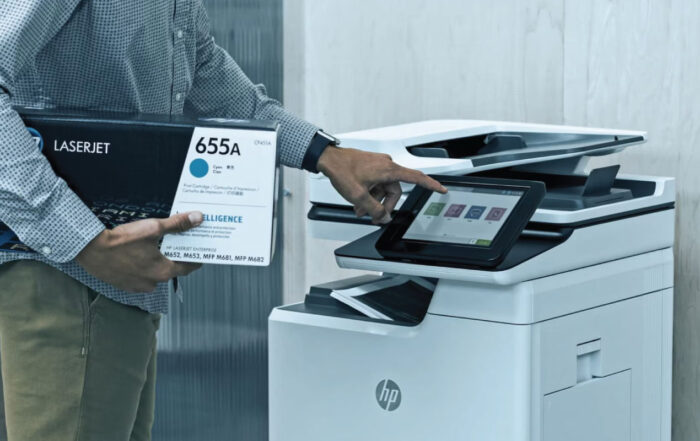Germs spread unbelievably fast in the workplace. Whether they’re brought in from home or public transit, the office is a hub for sharing bacteria and viruses between coworkers. In fact, it can take as little as two hours for one flu-infected employee to contaminate half of a single office. We are all responsible for transferring germs from one person to the next. However, there are many precautionary measures we can take to maintaining a healthy office. Here are seven tips to fight back, beat the germs, and take control of your health in the workplace.
Wash Your Hands
Hand washing is one of the best ways to protect yourself and your co-workers from getting sick. Many diseases and conditions are spread by not washing hands with soap and clean, running water. When washing your hands, rub your hands vigorously for at least 20 seconds with antibacterial soap. Remember to scrub all surfaces, including the backs of your hands, wrists, between your fingers and under your fingernails. People often contaminate objects by coughing or sneezing into their hands and touching the object or directly on the object. Make sure you are covering your coughs and sneezes followed by washing your hands. Although washing your hands is the best practice to eliminate spreading germs, hand sanitizer can also be effective. If you are using hand sanitizer, confirm that the product contains at least 60% alcohol for maximum germ prevention.
Keep Your Distance
Stay away from sick co-workers. Sounds pretty simple, right? Most people catch viruses through airborne exposure, usually through droplets made when infected people cough or sneeze. This becomes increasingly dangerous in shared spaces, such as the workplace. Consider adding an AeraMax Air Purifier to your space to remove 99.97% of airborne particles. Dr. William Lindsley from the National Institute for Occupational Safety and Health states, “Once people have a combination of symptoms such as a fever, headache, chills and sweats, they’ve already started ‘shedding’ the virus to others.” Make sure to avoid co-workers who have cold or flu symptoms as well as staying home if you are showing signs of illness.
Sanitize Your Workstation
Consistently disinfecting your work space is a great way to eliminate germs. Desks and the items on it have high potential for contamination. In fact, the average desk harbors 400 times more bacteria than the average toilet seat. Using an antibacterial wipe on your desk, computer, keyboard and mouse before and after your shift will help keep your space germ free. On average, desk phones and cell phones are the most contaminated item in the office. Keep in mind the cleanliness of your hands before answering a call – make sure to sanitize your phone, and wash your hands often. If you’re office is hot-desking, microbiological activity is 18% higher. Always sanitize your workstation before and after use to ensure you are not spreading germs to the next user.
Get a Flu Shot
Flu vaccines are necessary for two reasons. First, annual vaccines are needed for optimal protection as a person’s immune defense declines over time. Second, flu vaccines may be updated from one season to the next due to the constant change in flu viruses. 17 million workdays are lost to flu-related illness. For the best workplace protection, everyone in your office is encouraged to get vaccinated annually.
Avoid Hot Spots
Many bacteria and viruses can last on surfaces for up to 7 days. Items such as the fridge, door handles, printers, coffee pots, etc. are often heavily used by all employees. This makes it easier to spread germs from coworker to coworker. If possible, avoid contact with these hot spots for your best chance at staying healthy. If that’s not possible, make an effort to grab these items with a tissue, avoid touching your face after contact, and washing your hands as soon as possible.
Sleep & Eat Well
When your basic wellness needs are met, your body functions at its best. Moderate exercise activity will improve your overall fitness, which can help boost your immune system and defend your body against infections. Eating a well-balanced diet will help give your body the fuel it needs to fight off germs. It is also important to get enough sleep each night. Research shows that consistently getting seven to eight hours of sleep will boost your immune system, manage weight loss, and help retain memory.
Take Your Vitamins
Vitamin C is well known for its role in supporting a healthy immune system. It is known to shorten the life of colds, protect the body against infection, protect your cells from damage, and more. Try taking a Vitamin C immune support tablet such as Emergen-C or Airborne to boost your daily immune system. Vitamin D also helps our immune system stay balanced during cold and flu season. It is known to increase immune cell function, lining your lungs to fight off viruses. Consider spending time in the sunlight or taking a supplement to increase your levels of Vitamin-D.
Practice the Same Hygiene You Expect From Your Coworkers
Workaholic behaviors don’t always make it easy to keep sickness away. In a recent survey, results show that half of UK workers would still go to work with a stomach bug, while 55% said they would go to work even with the flu. If you go into work sick, the increase of spreading your germs to others greatly increases. If you are feeling sick, take off work or work from home. Your office-mates will definitely appreciate not being exposed to your illness. CLICK HERE to start shopping for products that will help keep your work space germ free and support a healthy immune system.
References: University of Arizona, CDC, Fellowes , Mayo Clinic






